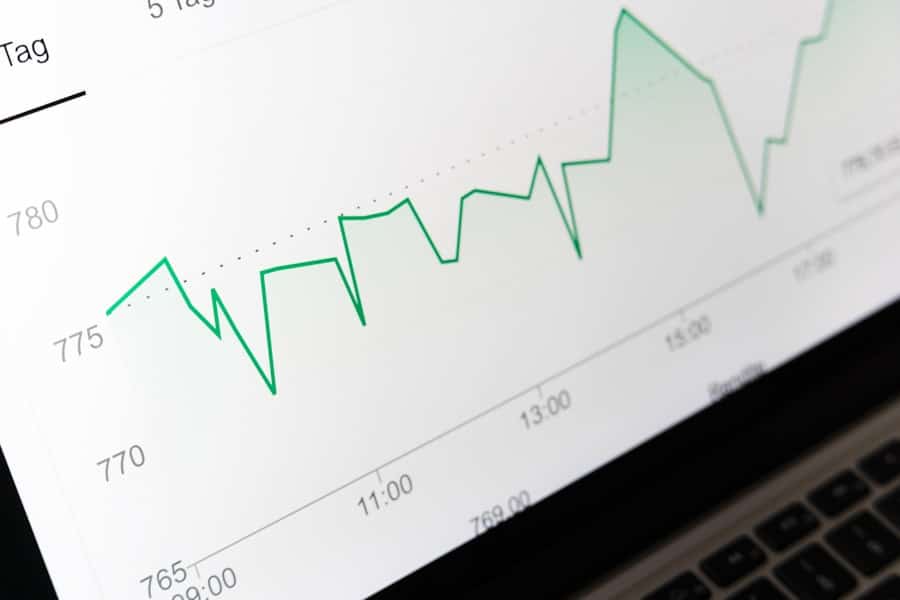Smart contracts are self-executing contracts with the terms of the agreement directly written into code. They operate on blockchain technology, which ensures transparency, security, and immutability. The execution of these contracts is automatic, meaning that once the conditions are met, the contract executes itself without the need for intermediaries.
This automation reduces the potential for human error and increases efficiency in various transactions, from financial services to supply chain management. Oracles, on the other hand, serve as bridges between the blockchain and the external world. They provide smart contracts with access to real-time data that exists outside the blockchain environment.
This data can include anything from market prices and weather conditions to sports scores and election results. Without oracles, smart contracts would be limited to executing based solely on the information available within the blockchain, which significantly restricts their functionality and applicability in real-world scenarios. Thus, oracles play a crucial role in enhancing the capabilities of smart contracts by enabling them to respond to real-time events and conditions.
Key Takeaways
- Oracles are third-party services that provide real-world data to smart contracts, allowing them to interact with external systems.
- Real-world data is crucial for smart contracts to execute conditions and trigger actions based on real-time events.
- Oracles play a vital role in connecting real-world data, such as market prices or weather conditions, to smart contracts on blockchain platforms.
- Oracles ensure data accuracy and reliability by using multiple data sources, consensus mechanisms, and reputation systems.
- There are different types of oracles, including software oracles, hardware oracles, and consensus oracles, each with specific functionalities and use cases.
The Importance of Real-World Data in Smart Contracts
Real-world data is essential for smart contracts to function effectively in a variety of applications. For instance, in decentralized finance (DeFi), smart contracts often rely on accurate price feeds to execute trades or liquidate collateral. If a smart contract is programmed to sell an asset when its price drops below a certain threshold, it must have access to reliable price data to make that determination.
Without accurate real-world data, the execution of such contracts could lead to significant financial losses or unintended consequences. Moreover, real-world data enhances the versatility of smart contracts across different industries. In insurance, for example, a smart contract could automatically trigger a payout based on weather data from an oracle indicating that a natural disaster has occurred.
This capability not only streamlines the claims process but also builds trust between insurers and policyholders by ensuring that payouts are made promptly and fairly based on objective criteria. The integration of real-world data into smart contracts thus opens up new avenues for automation and efficiency across various sectors.
The Role of Oracles in Connecting Real-World Data to Smart Contracts

Oracles act as intermediaries that fetch and verify external data before relaying it to smart contracts on the blockchain. They can be categorized into different types based on their functionality and the sources of data they utilize. For instance, some oracles pull data from APIs provided by third-party services, while others may aggregate information from multiple sources to ensure accuracy and reliability.
This process is vital because it allows smart contracts to react to changes in real-world conditions, thereby expanding their utility beyond mere on-chain transactions. The mechanism by which oracles operate can vary significantly. Some oracles are centralized, relying on a single source of truth for their data, while others are decentralized, drawing from multiple sources to mitigate risks associated with data manipulation or inaccuracies.
Decentralized oracles are particularly important in maintaining the integrity of smart contracts, as they reduce the likelihood of a single point of failure or bias affecting the outcome of contract execution. By providing a reliable conduit for real-world data, oracles empower smart contracts to function effectively in dynamic environments.
How Oracles Ensure Data Accuracy and Reliability
Ensuring data accuracy and reliability is one of the primary challenges faced by oracles. To address this issue, many oracle solutions employ various mechanisms to validate the data they provide. For example, some oracles utilize consensus algorithms where multiple independent nodes verify the same piece of information before it is relayed to the smart contract.
This approach helps to ensure that the data is not only accurate but also resistant to tampering or fraud. Additionally, some oracle networks implement incentive structures that reward participants for providing accurate data while penalizing those who submit false information. This creates a system of checks and balances that encourages honest reporting and enhances overall data integrity.
Furthermore, regular audits and performance assessments can be conducted to evaluate the reliability of oracle services over time.
Types of Oracles and Their Functionality
Oracles can be broadly classified into several categories based on their functionality and the nature of the data they provide. The most common types include software oracles, hardware oracles, inbound oracles, and outbound oracles. Software oracles are designed to fetch data from online sources such as APIs or web scraping tools.
They are particularly useful for retrieving information like stock prices, weather forecasts, or sports scores. Hardware oracles, on the other hand, connect physical devices to blockchains. For instance, IoT devices can serve as hardware oracles by providing real-time data about environmental conditions or equipment status directly to smart contracts.
Inbound oracles bring external data into the blockchain ecosystem, while outbound oracles send information from the blockchain to external systems. Each type of oracle plays a unique role in ensuring that smart contracts have access to the necessary data for execution.
Challenges and Risks Associated with Oracles in Smart Contracts

Despite their critical role in enhancing smart contract functionality, oracles face several challenges and risks that can impact their effectiveness. One significant concern is the potential for data manipulation or inaccuracies. If an oracle provides false information—whether intentionally or due to technical errors—it can lead to incorrect contract execution and financial losses for users relying on that data.
Another challenge is the issue of centralization versus decentralization in oracle networks. Centralized oracles may offer faster access to data but come with increased risks related to single points of failure and potential biases in data sourcing. Conversely, decentralized oracles can provide more reliable data but may face challenges related to latency and complexity in consensus mechanisms.
Balancing these trade-offs is crucial for developing robust oracle solutions that meet the needs of various applications.
The Future of Oracles in Smart Contract Technology
The future of oracles in smart contract technology appears promising as advancements continue to emerge in both blockchain and oracle solutions. As industries increasingly recognize the value of automation and transparency offered by smart contracts, the demand for reliable oracle services is likely to grow correspondingly. Innovations such as decentralized finance (DeFi) platforms and non-fungible tokens (NFTs) are already driving interest in oracle technology as they require accurate real-world data for optimal functionality.
Moreover, as more businesses adopt blockchain technology for various applications—from supply chain management to healthcare—there will be an increasing need for sophisticated oracle solutions that can handle diverse types of data across different sectors. The integration of artificial intelligence (AI) and machine learning (ML) into oracle systems may also enhance their ability to analyze and validate data more effectively, further improving accuracy and reliability.
Examples of Successful Integration of Oracles and Smart Contracts
Several projects have successfully integrated oracles with smart contracts, showcasing their potential across various industries. One notable example is Chainlink, a decentralized oracle network that connects smart contracts with real-world data feeds. Chainlink has been widely adopted in DeFi applications, providing reliable price feeds for numerous tokens traded on decentralized exchanges (DEXs).
Its decentralized approach mitigates risks associated with single points of failure while ensuring that users have access to accurate market information. Another example is Augur, a decentralized prediction market platform that utilizes oracles to settle bets based on real-world events.
This integration not only enhances user trust but also demonstrates how oracles can facilitate complex interactions within decentralized ecosystems. In summary, the integration of oracles with smart contracts represents a significant advancement in blockchain technology, enabling these self-executing agreements to interact with real-world events and conditions effectively. As both fields continue to evolve, we can expect further innovations that will enhance their capabilities and broaden their applications across diverse industries.
In a recent article on Enicomp, the comparison between the Apple Watch and Samsung Galaxy Watch was discussed in detail. This article provides valuable insights into the features and functionalities of these popular smartwatches, which are increasingly being used to connect real-world data to smart contracts. To learn more about the latest advancements in smartwatch technology, check out the Apple Watch vs Samsung Galaxy Watch article.
FAQs
What is an oracle in the context of smart contracts?
An oracle is a third-party service that provides smart contracts with external information, such as real-world data or events. Oracles are used to connect the blockchain, where smart contracts operate, with the outside world.
How do oracles work with smart contracts?
Oracles work by fetching and verifying real-world data and then feeding it into smart contracts. This allows smart contracts to make decisions and execute actions based on real-world events or data.
What are the different types of oracles?
There are two main types of oracles: software oracles and hardware oracles. Software oracles rely on data from the internet, while hardware oracles use physical sensors and devices to provide data to smart contracts.
What are some examples of real-world data that oracles can provide to smart contracts?
Oracles can provide a wide range of real-world data, including stock prices, weather conditions, sports scores, and even IoT device data. This data can be used to trigger actions or decisions within smart contracts.
What are the potential risks of using oracles in smart contracts?
One of the main risks of using oracles is the potential for inaccurate or manipulated data, which can lead to incorrect decisions or actions within smart contracts. Additionally, oracles can be a point of vulnerability for security breaches.

